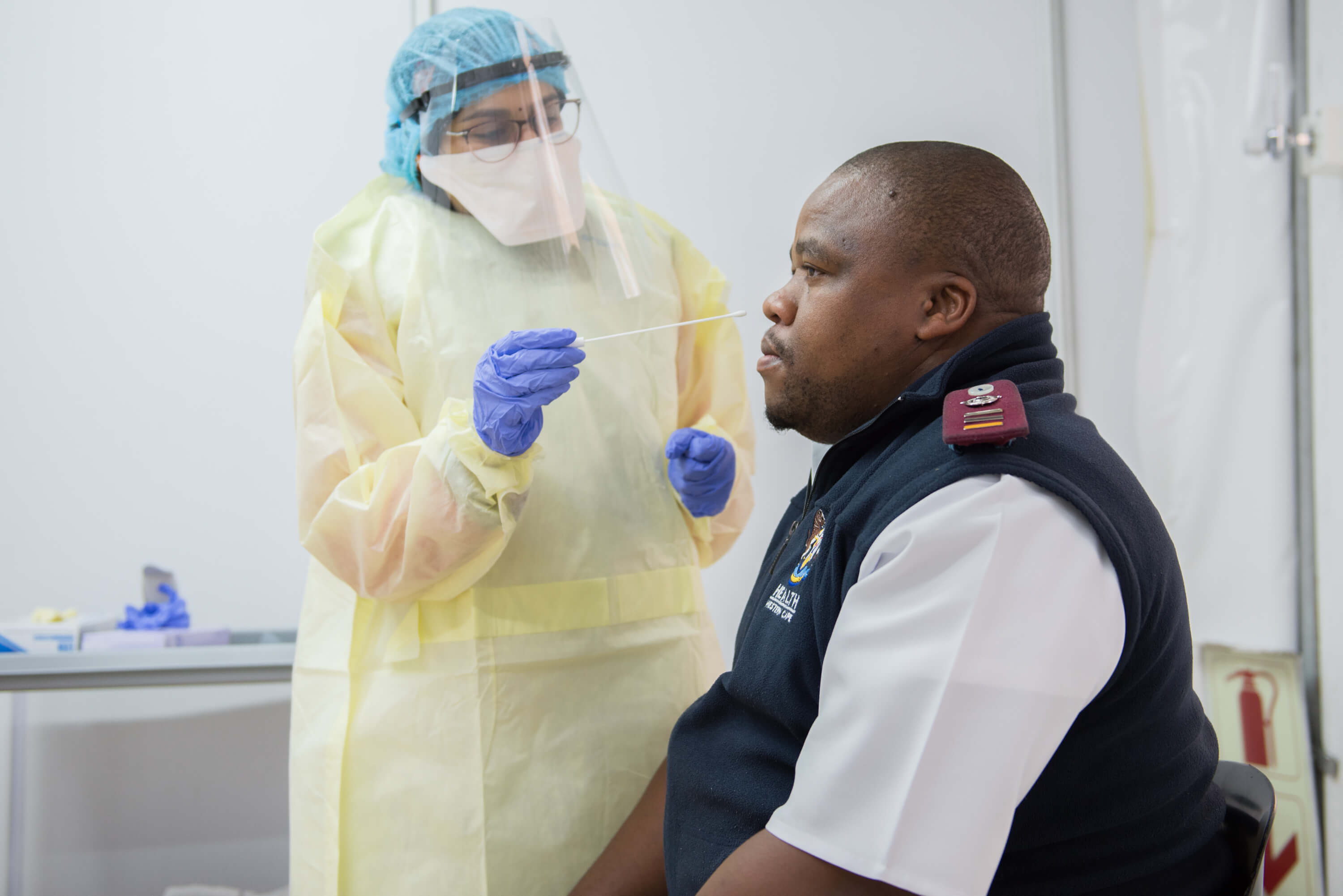We cannot look back on the progress of our partnerships in 2019 without acknowledging the unprecedented challenges we are facing as this report goes to print.
Over the first months of 2020, COVID-19 has overwhelmed some of the world’s most advanced health systems. As we write, the capacity of weaker health systems to manage a surge of severe cases is extremely limited, and the low availability of PPE for front-line healthcare workers in some areas means that these key staff are likely to be disproportionately affected by COVID-19.
The overwhelming majority of COVID-19 research studies are taking place in high-income countries. To help protect vulnerable communities in resource-limited settings, DNDi is mobilizing its networks to make sure their specific needs are prioritized in medical R&D for COVID-19 vaccines, diagnostics, and treatments.
“ On behalf of the German Government I wish to express my gratitude that we could intensify our long-lasting collaboration with DNDi in the fight against the COVID-19 pandemic. This pandemic underlines the necessity of a global approach and shows the advantages of instruments such as product development partnerships. I am confident that DNDi’s work will speed delivery of reliable and accessible drugs and tools to all people, including the most vulnerable. ”
Leveraging the power of collaboration
DNDi co-launched the COVID-19 Clinical Research Coalition in early April 2020 to help fast-track desperately needed research for low-resource settings. More than 250 member representatives from 168 institutions in 56 countries have joined so far, working to complement the efforts of the World Health Organization (WHO) and other stakeholders researching new tools for COVID-19 prevention, diagnosis, and treatment in resource-limited settings. With leadership from experts in low- and middle-income countries (LMICs), members are focused on streamlining complex processes and addressing critical concerns such as ethics review, regulation, manufacturing, clinical trials support and logistics, data sharing, and ensuring equitable and affordable access to new tools.
A Clinical Research Coalition Against COVID-19
What is the COVID-19 Clinical Research Coalition? Why are clinical trials in low-resource settings necessary? How concretely can this platform help COVID-19 researchers?
“ Efforts to enhance research capacity, exchange know-how, standardize data collection, and share results rapidly are critical to developing and deploying the tools we need to protect health workers and communities in low-and middle-income countries. ”
Conducting research where it’s needed
DNDi and several expert groups from the COVID-19 Clinical Research Coalition have joined forces in preparing to launch the ANTICOV clinical trial in about 15 African countries. The goal is to identify one or two treatments that can be used to treat mild and moderate cases of COVID-19 early and prevent mass hospitalizations that could wreak havoc on fragile health systems. Led by the ANTICOV Consortium, the trial will compare the current standard of care with other existing repurposed treatments. Additional drugs could be added as the study advances, as the trial is designed to be able to add new potential treatments as they become available or to drop any treatments that are not working. Up to 3,000 patients with mild COVID-19 across over 20 sites could be included.
“ It is important that as Africans we do more than just apply the existing scientific knowledge about COVID-19. We should be part of the group that creates this knowledge. ”

How your donations are used
All contributions large and small have helped advance DNDi’s mission and goals.
88%
Social mission: R&D, strengthening capacity, and advocacy
8%
General management
4%
Fundraising


